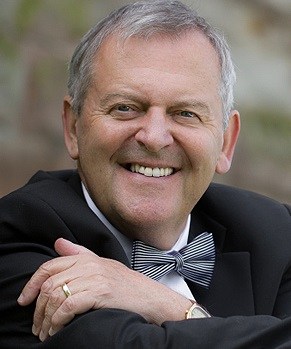Pat O’ Kelly
As Wexford Festival aficionados will be enjoying the final performances of unfamiliar works by Cherubini, Foroni and Alfano at the National Opera House this weekend, the National Concert Hall is the setting, on Saturday, Sunday and Tuesday next, for something less esoteric – Lyric Opera’s production of Verdi’s La Traviata.
Through its ever-resourceful artistic director Vivian Coates, Lyric Opera manages to function on a veritable shoestring budget.
With limited box office receipts, the company relies on whatever commercial and private sponsorship it can accrue with the Italian Cultural Institute contributing a welcome input this time round.
Directed and designed by Coates, Lyric Opera’s cast is being led by Dublin-born soprano Claudia Boyle as the consumptive courtesan Violetta Valery.
Ms Boyle has recently sung the role in Klagenfurt and will do so again in a new production at London’s Coliseum later in the season.
She is being joined here by English tenor Alexander James Edwards as man-about-town and despicable cad Alfredo Germont and baritone Charles Johnston as his more honourable father Giorgio.
The opera, which has the benefit of the RTÉ Concert Orchestra, brings young English conductor Timothy Burke as music director.
La Traviata is based on the play La Dame aux Camélias, derived from a novel by Alexandre Dumas, fils. Seeing and liking it in Paris in 1852, Verdi considered it an operatic possibility. Following the success of his Rigoletto in Venice in March 1851, and while working on Il Trovatore for Rome, the Venetian company asked him for something new. The result was the Dumas adaptation in which Verdi collaborated with librettist Francisco Maria Piave.
Fiasco
Whatever about the opera’s current and past popularity, the première at Teatro La Fenice on March 6, 1853 was a fiasco. Upset and disappointed but believing in the merits of his score, Verdi blamed both singers and audience.
It seems the Alfredo was hoarse; the baritone singing Germont Père considered his role beneath him and the rather overweight Violetta – Fanny Salvini-Donatelli – was totally miscast as the frail demimonde.
The audience jeered and hissed. However, when revived at La Fenice a year later with a change of cast, La Traviata was a total success and, 164 years on, its star still shines brightly throughout the operatic firmament.
*****
Congratulations to Dublin-born composer/pianist Philip Martin who returns to the National Concert Hall over the coming weekend to celebrate his 70th birthday. His Sunday afternoon programme includes music by himself, Fauré, Debussy, Barber and Brahms’ exhilarating Handel Variations.
A pupil here of the late Mabel Swainson, he continued his studies in London’s Royal Academy, of which he is now a fellow. A period in the United States developed his interest in American music, particularly that of the colourful 19th Century figure Louis Moreau Gottschalk. This led to his highly acclaimed eight-volume CD set of the latter’s piano music.
A senior professor at Birmingham’s Conservatoire and a long-standing member of Aosdána, Philip Martin’s prolific compositions include orchestral, choral and chamber works as well as over 300 songs.


 Philip Martin
Philip Martin 